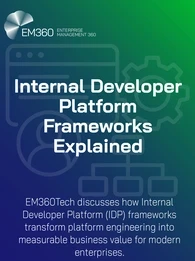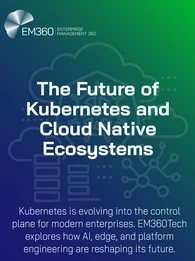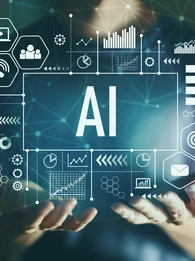As enterprises push to deliver software faster and more efficiently, continuous integration and continuous delivery (CI/CD) pipelines have become central to modern engineering. With increasing complexity in builds, tools, and environments, the challenge is no longer just speed, but it’s also about maintaining flow, consistency, and confidence in every release.
In this episode of Tech Transformed, host Dana Gardner joins Arpad Kun, VP of Engineering and Infrastructure at Bitrise, to explore how solid CI/CD foundations can drive innovation and enable enterprises to harness AI in more practical, impactful ways. Drawing on findings from the Bitrise Mobile DevOps Insights Report, Kun shares how teams are optimising mobile delivery pipelines to accelerate development and support intelligent automation at scale.
Complexity of Continuous Integration
“Continuous integration pipelines are becoming more complex,” says Kun. “Build times are decreasing despite increasing complexity.” Faster compute and caching solutions are helping offset these pressures, but only when integrated into a cohesive CI/CD platform that can handle the rising demands of modern software delivery.
A mature CI/CD environment creates stability and predictability. When developers trust their pipelines, they iterate faster and with less friction. As Kun notes, “A robust CI/CD platform reduces anxiety around releases.” Frequent, smaller iterations deliver faster feedback, shorten release cycles, and often improve app ratings—especially in the fast-paced world of mobile and cross-platform development.
AI Ambitions with Engineering Reality
It’s easy to become swept up in the potential of AI without considering whether existing foundations can support it. Many development environments are not yet equipped to handle the iterative, data-intensive nature of AI-powered software engineering. Without scalable CI/CD pipelines, teams risk encountering bottlenecks that can cancel out the potential benefits of AI.
To truly drive innovation, enterprises must align their AI ambitions with robust automation, strong observability, and disciplined engineering practices. A well-designed CI/CD platform allows teams to integrate AI responsibly, accelerating testing, improving deployment accuracy, and maintaining agility even as complexity grows.
Takeaways
- Continuous integration pipelines are becoming more complex.
- Build times are decreasing despite increasing complexity.
- Faster computing and caching are key to improving delivery speed.
- Flaky tests have increased significantly, causing inefficiencies.
- Monitoring and isolating flaky tests can improve build success rates.
- Maintaining flow for engineers is crucial for productivity.
- A robust CI/CD platform reduces anxiety around releases.
- Frequent iterations lead to faster feedback and improved app ratings.
- Cross-platform development is on the rise, especially with React Native.
- The future of software development will be influenced by AI.

When Platforms Become Products
IDP frameworks shift DevOps from tool sprawl to productized platforms, boosting DORA performance, governance, and developer experience.
Chapters
00:00 Introduction to Tech Transformed Podcast
01:08 The Complexity of Continuous Integration
04:24 Challenges of Increased Speed in Development
08:09 The Importance of Continuous Integration and Deployment
10:32 Building a Robust CI/CD Platform
14:25 The Impact of Release Frequency on Business
16:52 Types of Applications and Development Trends
18:47 Aligning Development with Business Goals
24:15 Preparing for the Future of Software Development
About Bitrise
Bitrise is a top mobile CI/CD platform, streamlining build, test, and deployment for mobile apps. It offers a user-friendly interface, robust integrations, and scalable infrastructure to simplify development and ensure efficient delivery of high-quality apps.









Comments ( 0 )